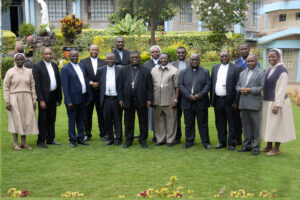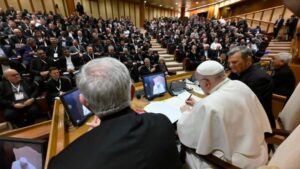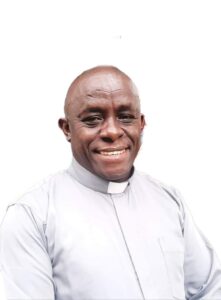KENYA: Catholic Bishops Condemn Cultic Movement in Kenya, Call for Review of Religious Societies Rules

Sr. Jecinter Antoinette Okoth, FSSA
Following a controversial religious movement detected recently in Kenya after some followers of a one Pastor Paul Mackenzie were discovered to starve to death, Catholic bishops have criticized the cultic movement asking for implementation of religious societies rules proposed nearly eight years ago.
“It is very unfortunate that we are witnessing a worrying reality in the country where the so-called prophets and cultic leaders have mastered the art of exploiting gullible Kenyans in the name of religion. In the process, their innocent followers have lost money, property and now lives,” the bishops decry the ongoing act which they term suicidal, highlighting that “Life is a precious gift from God that all of us have a moral duty to nurture and protect.”
They called for review of religious societies rules saying, “We revisit the debate on regulation of religions in the country and the resultant public outcry from Church leaders against the proposed regulation through the review of proposals in the Religious Societies Rules 2015.”
In the statement signed by the Chairman of the Kenya Conference of Catholic Bishops (KCCB) Archbishop Martin Kivuva Musonde of Mombasa Archdiocese, the prelates have warned Kenyans that cultism is a dangerous phenomenon and the people “must always remain on their guard.”
“Cultic leaders usually have a very tight grip on their followers whom they influence to believe that they are always right and have exclusive knowledge of the truth,” they expressed in their message shared Monday, April 24, and stressed that the Catholic Church believe that “asking people to fast and die in order to meet Jesus is not Christian but a heretical teaching that should ordinarily attract corresponding disciplinary measures by the religious family where the Church leader belongs.”
Even though the Catholic Church leaders call for review of the proposed Religious Societies Rules of 2015, they “acknowledge the challenge of self-regulation in an environment where many sects and denominations resist leadership structures and systems,” but shares their opinion that, “If a strong mechanism of regulating religions was in place, the long arm of the law would have stopped Pastor Mackenzie from taking advantage of Kenyans to engage in acts of mass suicide.”
In this case, they still insist on review of the proposed state laws to ensure that those whom they term as “rogue pastors,” are “exposed in good time and denied opportunity to perpetuate their dangerous acts.”
They highlighted that such a review should help to identify the weak legal and religious links that cult leaders have been exploiting to brainwash their unsuspecting followers.
They further noted that religious leaders have a responsibility to work together in analyzing the religious landscape in Kenya which could be promoting dangerous cults, partnering closely with state agencies to address any cultic tendencies before they escalate out of control.
So far over 100 bodies have been exhumed at a place called Shakahola village in Kilifi County, located in the coastal region of Kenya, a situation which most Kenyans including the Bishops learnt “with great shock.”
As the bishops condemn the cultic preaching orchestrated by Pastor Mackenzie of Good News International Church, they conveyed condolences to the bereaved families who lost their loved ones praying to God to comfort them during this difficult time.
The Bishops in Kenyans therefore called for speedy investigation into the circumstances leading to the “heinous act that led gullible Kenyans to their untimely death.”


